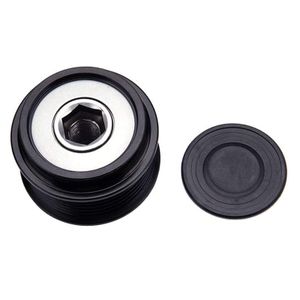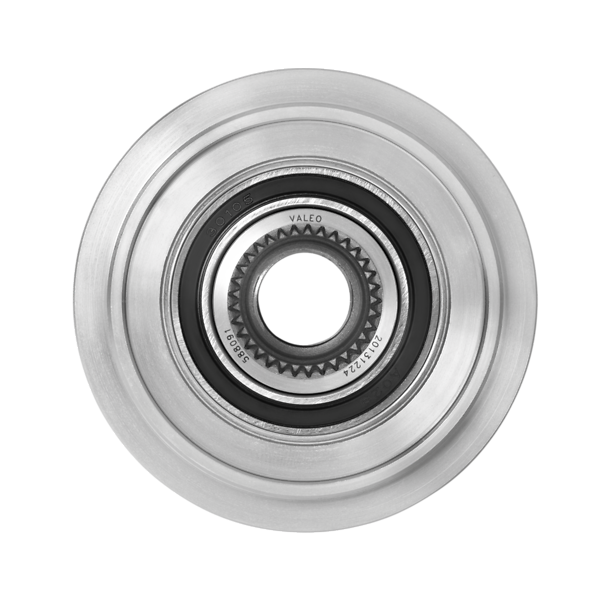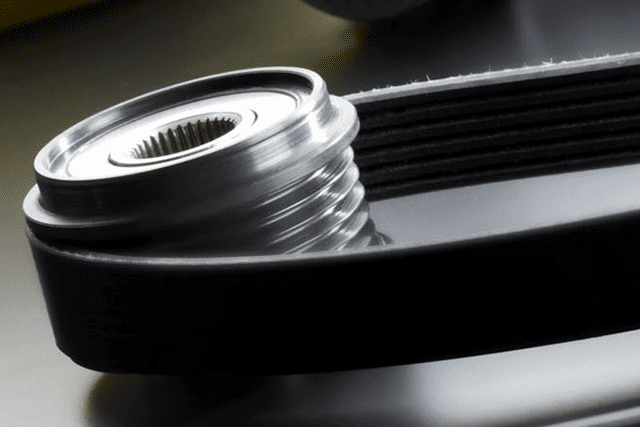Product Description
| 1. Price : | EXW Price |
| 2.Shipping Way: | By Sea, DHL, UPS, FEDEX or as customers' requirements |
| 3.Payment Terms: | Via T/T ,L/C ,Paypal ,Westerm Union,Moneygram. |
| 4.Delivery Time: | Within 30 days after deposit or as customers' requirement |
| 5.Packaging:Packaging: |
1.Carton Box, 4.We can perform according to customer's requirements |
CHINAMFG Established in 2571, which is a professional manufacturer and exporter that is concerned with the design, development and production of auto parts. We are located in HangZhou, with convenient transportation access. All of our productscomply with international quality standards and are greatly appreciated in a variety of different markets throughout the world.
Covering an area of 10000 square meters, we now have over 100 employees, an annual sales figure that exceeds USD 300,000 and are currently exporting 80% of our production worldwide. Our well-equipped facilities and excellent quality control throughout all stages of production enables us to guarantee total customer satisfaction.
Besides, we have received ISO9001 and CE.As a result of our high quality products and outstanding customer service, we have gained a global sales network CHINAMFG South America.
If you are interested in any of our products or would like to discuss a customorder, please feel free to contact us. We are looking CHINAMFG to forming successful business relationships with new clients around the world in the near future.
/* March 10, 2571 17:59:20 */!function(){function s(e,r){var a,o={};try{e&&e.split(",").forEach(function(e,t){e&&(a=e.match(/(.*?):(.*)$/))&&1
| After-sales Service: | 24 Hours |
|---|---|
| Warranty: | 1 Year |
| Material: | Steel |
| Muffler Type: | Rear Muffler |
| Deck: | Single |
| Quality: | High Quality |
| Samples: |
US$ 100/Piece
1 Piece(Min.Order) | |
|---|
| Customization: |
Available
| Customized Request |
|---|

How do you select the right car pulley for a specific automotive repair or upgrade?
Selecting the right car pulley for a specific automotive repair or upgrade requires careful consideration of various factors. Here's a detailed explanation of the steps involved in selecting the right car pulley:
- Identify the Specific Requirement: Determine the purpose of the car pulley. Are you replacing a faulty pulley, upgrading for improved performance, or modifying the engine system? Identifying the specific requirement helps narrow down the options and select the appropriate type of pulley.
- Refer to the Vehicle's Specifications: Consult the vehicle's specifications, such as the owner's manual or manufacturer's guidelines, to gather information about the original equipment pulley specifications. This includes details like the pulley's diameter, width, groove configuration, and other specific requirements. Matching these specifications ensures compatibility and proper fitment.
- Research and Compatibility: Conduct thorough research to identify aftermarket pulleys or upgrades available for your vehicle. Look for reputable manufacturers or suppliers that offer pulleys specifically designed for your vehicle make, model, and engine configuration. Check for compatibility with your engine system, accessory drive setup, and any other relevant considerations.
- Consider Performance and Design: If you are upgrading or modifying the engine system, consider performance-oriented pulleys that can enhance power delivery, reduce rotational inertia, or improve efficiency. Look for lightweight materials, optimized designs, or adjustable pulleys that allow customization based on your specific needs.
- Consult with Experts: Seek advice from automotive professionals, such as mechanics or performance specialists, who have expertise in car pulleys. They can provide insights, recommendations, and guidance based on their experience and knowledge. They may suggest specific brands, models, or configurations that are suitable for your intended use.
- Quality and Reliability: Prioritize pulleys that are manufactured by reputable brands known for their quality and reliability. Read customer reviews, assess the manufacturer's reputation, and consider factors like warranty coverage and product support. Choosing a high-quality pulley ensures durability, longevity, and optimal performance.
It's important to note that the selection process may vary depending on the specific automotive repair or upgrade. For routine replacements, it is generally recommended to use OEM-equivalent pulleys to maintain compatibility and performance. However, for performance upgrades or modifications, aftermarket pulleys designed for specific applications may be more suitable.
Ultimately, selecting the right car pulley requires a combination of research, consideration of the vehicle's specifications, compatibility with the engine system, performance requirements, and expert advice. Taking the time to make an informed decision ensures that you choose the appropriate pulley for your automotive repair or upgrade, leading to reliable and efficient operation.

How do car pulleys contribute to the overall fuel efficiency of a vehicle?
Car pulleys play a significant role in the overall fuel efficiency of a vehicle. They contribute to the efficient operation of various engine-driven components and help reduce parasitic losses. Here's a detailed explanation of how car pulleys contribute to the overall fuel efficiency of a vehicle:
- Reduced Parasitic Drag: Car pulleys are responsible for driving accessories such as the alternator, power steering pump, air conditioning compressor, and water pump. These accessories draw power from the engine, creating parasitic drag that consumes fuel. Efficiently designed and properly tensioned pulleys minimize the resistance encountered by these accessories, reducing the amount of power required to operate them and minimizing fuel consumption.
- Optimized Power Delivery: Pulleys help optimize power delivery to the driven components. Properly sized and aligned pulleys ensure that the engine's power is efficiently transferred to the accessories without unnecessary energy losses. This allows the accessories to operate at their intended speeds and power requirements, minimizing the need for additional energy and improving overall fuel efficiency.
- Improved Throttle Response: Car pulleys can enhance throttle response, which indirectly affects fuel efficiency. Lighter pulleys with reduced rotational inertia can reduce the time it takes for the engine to respond to throttle inputs. This improved response allows for more precise control over the engine's power output, enabling drivers to modulate their acceleration and maintain efficient fuel consumption during various driving conditions.
- Efficient Cooling System Operation: The water pump, driven by a pulley, circulates coolant throughout the engine to maintain optimal operating temperatures. Properly functioning pulleys ensure that the water pump operates at the appropriate speed, delivering sufficient coolant flow for efficient engine cooling. This prevents overheating and the need for fuel-consuming measures, such as running the cooling fans at higher speeds, to maintain engine temperature.
- Optimal Charging System Performance: The alternator, driven by a pulley, is responsible for charging the vehicle's battery and providing electrical power to various electrical systems. Well-maintained pulleys ensure that the alternator operates at the correct speed, generating the necessary electrical power without excessive strain on the engine. This helps maintain the battery's charge, reducing the need for frequent recharging and optimizing fuel efficiency.
- Proper Power Steering Function: The power steering pump, driven by a pulley, assists in steering effort by providing hydraulic power. Smooth and efficient operation of the power steering system reduces the strain on the engine and minimizes fuel consumption. Well-maintained pulleys ensure that the power steering pump operates optimally, supporting efficient power assistance and reducing unnecessary power draw from the engine.
In summary, car pulleys contribute to the overall fuel efficiency of a vehicle by reducing parasitic drag, optimizing power delivery, improving throttle response, facilitating efficient cooling system operation, enabling optimal charging system performance, and supporting proper power steering function. Proper maintenance, alignment, and tensioning of pulleys are essential to ensure their efficient operation, minimize energy losses, and maximize fuel efficiency.

How does the size and design of a car pulley impact engine performance?
The size and design of a car pulley have a significant impact on engine performance. The pulley's size and design influence critical factors such as power output, torque characteristics, component speeds, and efficiency. Here's a detailed explanation of how the size and design of a car pulley impact engine performance:
- Power Output: The size of the pulley directly affects the power output of the engine. A larger pulley on the crankshaft will result in a slower rotational speed, reducing the power output. Conversely, a smaller pulley will increase the rotational speed and potentially boost power output. Modifying the size of the pulley can be used to fine-tune the engine's power delivery characteristics and optimize performance for specific applications.
- Torque Characteristics: The size and design of the pulley impact the torque characteristics of the engine. A smaller pulley can increase the torque at lower engine speeds, providing better low-end responsiveness and acceleration. On the other hand, a larger pulley can improve top-end torque, allowing for higher speeds. The choice of pulley size and design should consider the desired torque curve and the engine's intended use.
- Component Speeds: The size and design of pulleys affect the rotational speeds of various engine components. For example, the size of the crankshaft pulley determines the speeds at which the driven components, such as the alternator, water pump, and power steering pump, operate. Proper sizing and design ensure that the components operate within their optimal speed ranges, maximizing their efficiency and performance.
- Belt Tension and Slippage: The size and design of the pulley influence the tension and potential slippage of the belts connected to it. A properly sized pulley ensures the correct tension in the belts, preventing excessive slippage that can lead to power loss and reduced efficiency. The pulley's design, including the shape and depth of the grooves, also plays a role in maintaining proper belt engagement and minimizing slippage.
- Efficiency: The size and design of the pulley impact the overall efficiency of the engine. An appropriately sized pulley helps optimize power transmission, minimizing energy losses due to belt slippage or excessive friction. Additionally, pulleys with well-designed grooves and smooth surfaces reduce friction, improving overall efficiency by reducing energy wastage and enhancing the engine's ability to convert fuel into useful work.
- Accessory Operation: The size and design of pulleys influence the operation of engine accessories. Properly sized pulleys ensure that the accessories, such as the alternator, power steering pump, and air conditioning compressor, operate at the correct speeds to provide optimal performance. A mismatch between pulley size and accessory requirements can lead to underperformance or excessive load on the engine.
In conclusion, the size and design of a car pulley have a significant impact on engine performance. They affect power output, torque characteristics, component speeds, belt tension, efficiency, and accessory operation. Careful consideration of pulley size and design is crucial in optimizing engine performance for specific requirements, balancing power, torque, and efficiency to achieve the desired performance characteristics.


editor by CX
2024-02-06